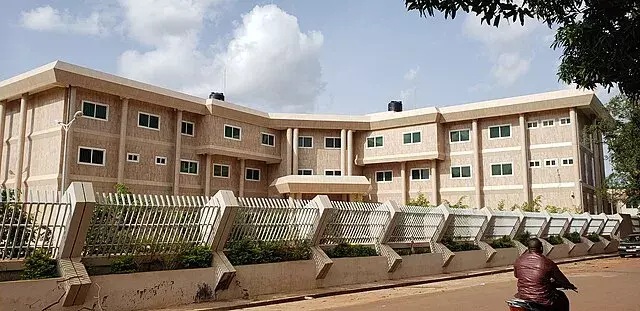Guinea Central Bank

- The Guinea Central Bank (Banque Centrale de la République de Guinée - BCRG), headquartered in Conakry, is the principal financial institution responsible for regulating and stabilizing the country’s monetary policy, currency issuance, and banking system. As the guardian of Guinea’s financial stability, it plays a crucial role in economic development, ensuring the proper management of inflation, exchange rates, and foreign reserves. Established in 1960, shortly after Guinea gained independence, the BCRG has been instrumental in shaping the nation’s financial landscape, adapting to economic challenges and global financial trends.
- One of the key responsibilities of the Central Bank is the issuance and regulation of Guinea’s national currency, the Guinean Franc (GNF). The bank oversees currency circulation, ensuring that inflation and devaluation are kept in check to maintain economic stability. It also manages the country’s monetary reserves and foreign exchange policies, working closely with international financial organizations such as the International Monetary Fund (IMF) and the World Bank to support economic growth and financial reforms. The BCRG regulates commercial banks, ensuring that they operate within the legal framework and maintain financial security for businesses and citizens.
- Beyond monetary policy, the Guinea Central Bank is actively involved in promoting financial inclusion and digital banking. With a large portion of Guinea’s population still reliant on informal financial systems, the bank has introduced initiatives to expand access to banking services, support microfinance institutions, and encourage the use of mobile banking. These efforts aim to integrate more Guineans into the formal financial system, fostering entrepreneurship and economic growth. The bank also monitors inflation trends, oversees interest rates, and ensures the stability of the financial market, helping to protect the purchasing power of the population.
- The BCRG building in Conakry is a significant landmark, often associated with Guinea’s economic policies and financial decisions. Though it is not open to the public, it remains an important institution for those interested in Guinea’s financial sector and economic development. As Guinea continues to expand its economy, particularly in sectors like mining, agriculture, and trade, the Central Bank’s role in managing monetary policy and financial stability remains critical to the nation’s progress. Through its regulatory oversight and modernization efforts, the BCRG plays a pivotal role in shaping Guinea’s economic future.
